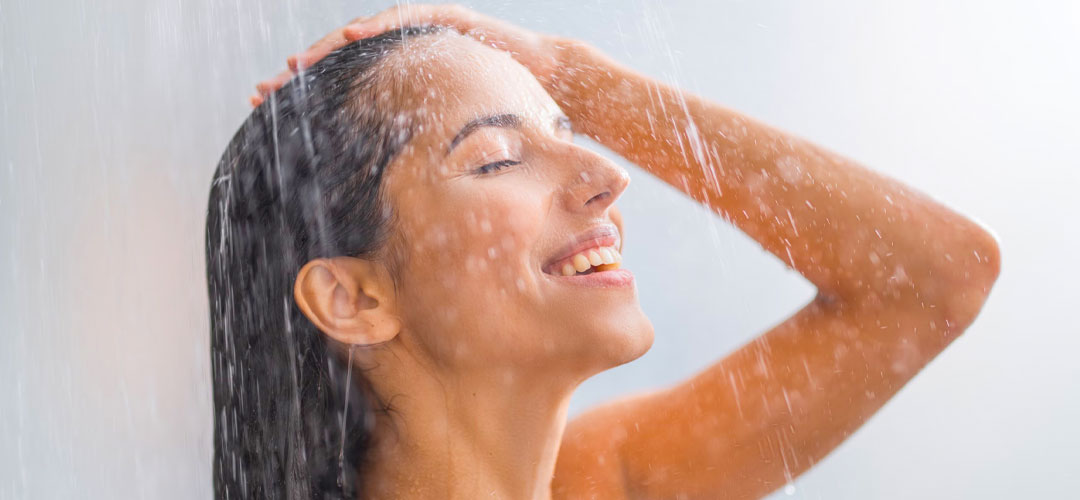
Cold showers are no longer just a survival tactic for power outages or camping trips – they’ve become a wellness trend in their own right.
From elite athletes to tech CEOs, more and more people are embracing cold therapy to sharpen their minds, boost their mood, and strengthen their bodies. But does the science support the buzz? And can something as simple as turning the tap to cold really make a meaningful difference to your mental health?
In this blog, we explore the cold therapy movement, break down the benefits of cold showers, and examine the evidence around cold water immersion benefits and beyond.
The Rise of Cold Therapy in the UK
Over recent years, the popularity of cold therapy has exploded, fuelled by viral challenges, Wim Hof’s breathing methods, and a renewed interest in natural ways to improve physical and mental wellbeing. While cold water swimming has long been part of UK coastal culture, it’s now becoming mainstream with people plunging into ice baths, installing cold plunge pools at home, and embracing morning cold showers as a daily ritual.
This shift aligns with growing interest in biohacking - the practice of using lifestyle and environmental tweaks to optimise health. Cold exposure is seen as a low-cost, accessible biohack that offers wide-ranging benefits, especially for mental resilience and mood regulation.
What Happens to the Body and Brain During a Cold Shower?
When cold water hits your skin, your body experiences a rapid stress response. Blood vessels constrict, heart rate increases, and breathing becomes faster - all part of the ‘fight or flight’ response. While this might sound unpleasant, brief exposure to this type of stress (known as hormetic stress) is actually beneficial in small doses. It conditions your nervous system to handle stress more effectively, builds resilience, and activates processes that protect the brain.
Some of the key physiological and neurological effects of cold showers include:
- Increased endorphin release – often referred to as the “feel-good” hormones
- Activation of noradrenaline – a neurotransmitter linked to improved mood and attention
- Improved vagus nerve tone – supporting parasympathetic nervous system regulation and reducing anxiety
- Enhanced blood circulation – delivering more oxygen and nutrients to the brain
- Stimulation of brown fat – promoting thermogenesis and energy expenditure
Together, these effects may help explain why many people feel energised, clear-headed, and uplifted after a cold shower.
Mental Health Benefits of Cold Showers: What the Research Says
The benefits of cold showers for mood are backed by a growing body of evidence - though it’s still a relatively new area of research.
A 2016 clinical hypothesis published in the Medical Hypotheses journal suggested that cold showers could help alleviate symptoms of depression due to their intense impact on the central nervous system. Participants in anecdotal studies and self-reported trials often describe improved alertness, reduced symptoms of low mood, and greater emotional resilience after regular cold exposure.
In terms of cold water immersion benefits, more recent studies are delving into how regular cold exposure might:
- Reduce symptoms of depression and anxiety
- Increase focus and cognitive performance
- Support post-exercise recovery and reduce fatigue
- Enhance willpower and reduce reactivity to stress
- Promote better sleep through improved circadian rhythm regulation
One UK-based observational study in 2023 found that individuals who engaged in cold water swimming at least once per week reported significantly higher levels of wellbeing and life satisfaction compared to non-swimmers.
Cold Showers vs Cold Water Immersion: What’s Best?
Both cold showers and full cold water immersion offer unique benefits, and the right choice may depend on your goals and comfort level.
- Cold showers are practical, free, and easy to integrate into a morning routine. Even 30 seconds to 2 minutes under cold water can deliver mental health benefits and build discipline.
- Cold water immersion (e.g. in a plunge pool, ice bath, or cold lake) typically leads to a deeper physiological response, including greater endorphin and anti-inflammatory effects. However, it requires more preparation and may not be suitable for everyone.
For those new to cold therapy practices, starting with a short cold shower at the end of a warm one is a great way to ease into the habit.
Cold Exposure and the Immune System
Aside from its mental health perks, cold therapy is also linked to enhanced immune function. Cold exposure may boost the production of white blood cells and improve lymphatic drainage, helping the body to defend against illness more efficiently.
Some evidence also suggests that regular cold water exposure might lower inflammation markers - a key factor in both mental and physical health.
Cold Therapy Tips for Beginners
Ready to give it a try? Here’s how to start incorporating cold therapy safely into your routine:
- Start gradually – Finish your usual shower with 15–30 seconds of cold water and build up over time
- Breathe deeply – Focus on slow, steady breathing to calm your nervous system
- Be consistent – Daily practice (even for short bursts) is more effective than one-off plunges
- Listen to your body – Cold therapy isn’t suitable for everyone, especially those with cardiovascular conditions; consult a healthcare provider if unsure
- Combine with other mood-boosters – Like sunlight, movement, or a healthy breakfast for added effect
Final Thoughts: Is Cold Therapy Worth It?
If you're looking for a simple yet powerful way to improve your mental health, build resilience, and boost your mood, cold showers are well worth a try. While not a substitute for professional mental health support, they can be a valuable tool in your self-care toolbox.
As cold therapy gains momentum across the UK, expect to see more products, services, and research around cold water immersion benefits for years to come. Whether it’s a 30-second shower blast or a Sunday morning lake dip, embracing the cold may just warm up your wellbeing in surprising ways.
Disclaimer:
Information and other content provided in Lily & Loaf blogs should not be construed as medical advice and should not be considered a substitute for professional medical expertise. If you have any medical concerns, you should consult with your health care provider.






